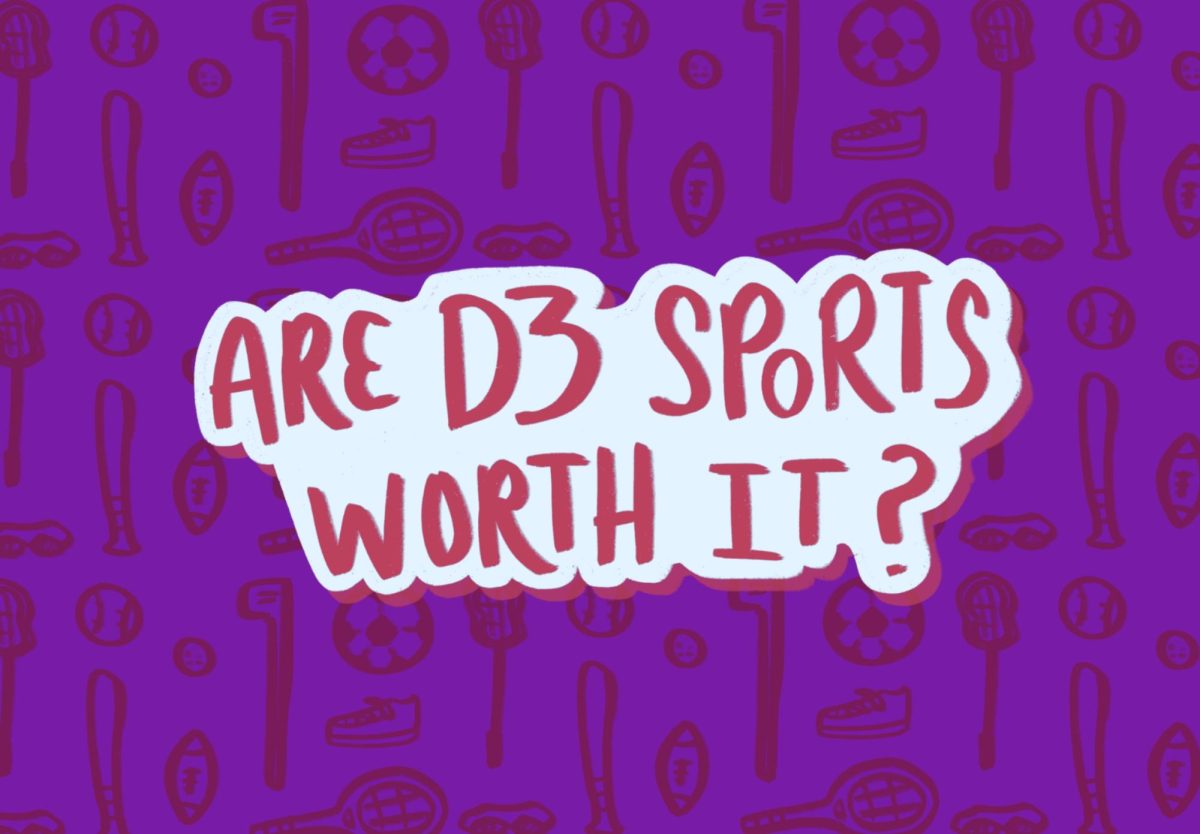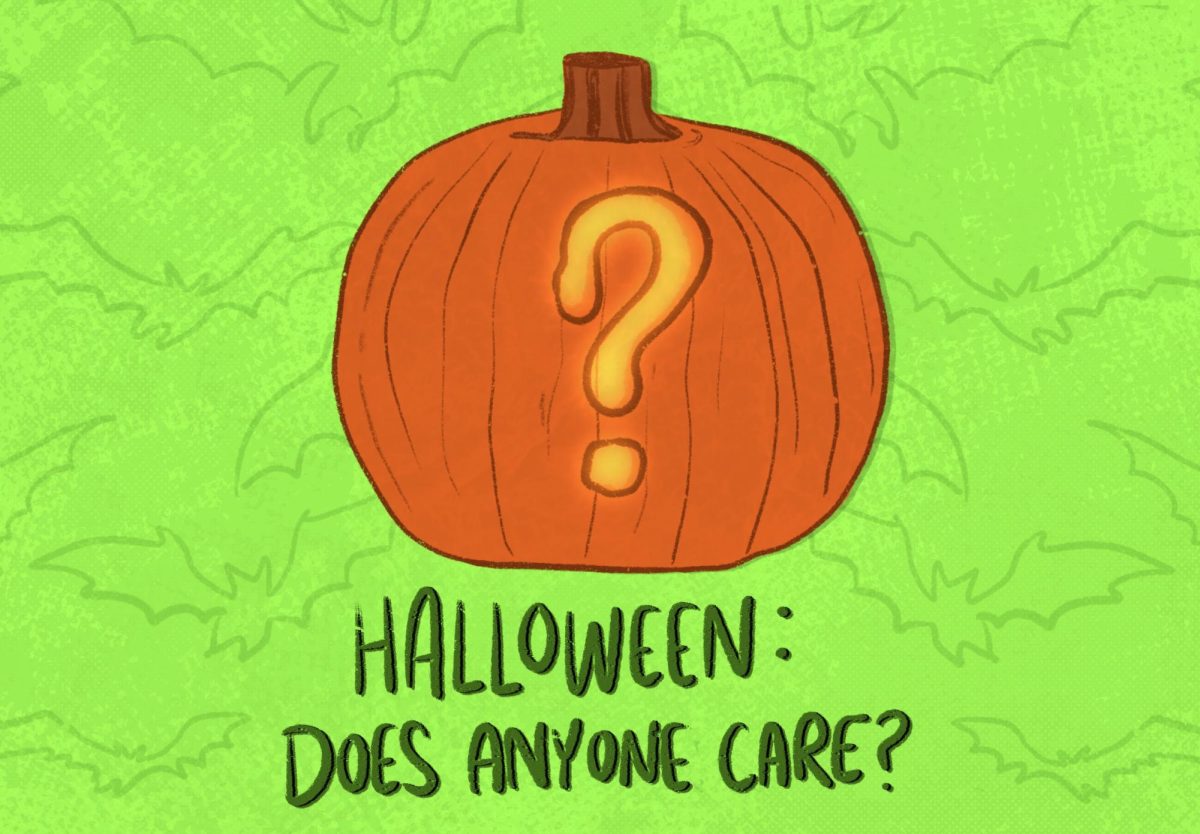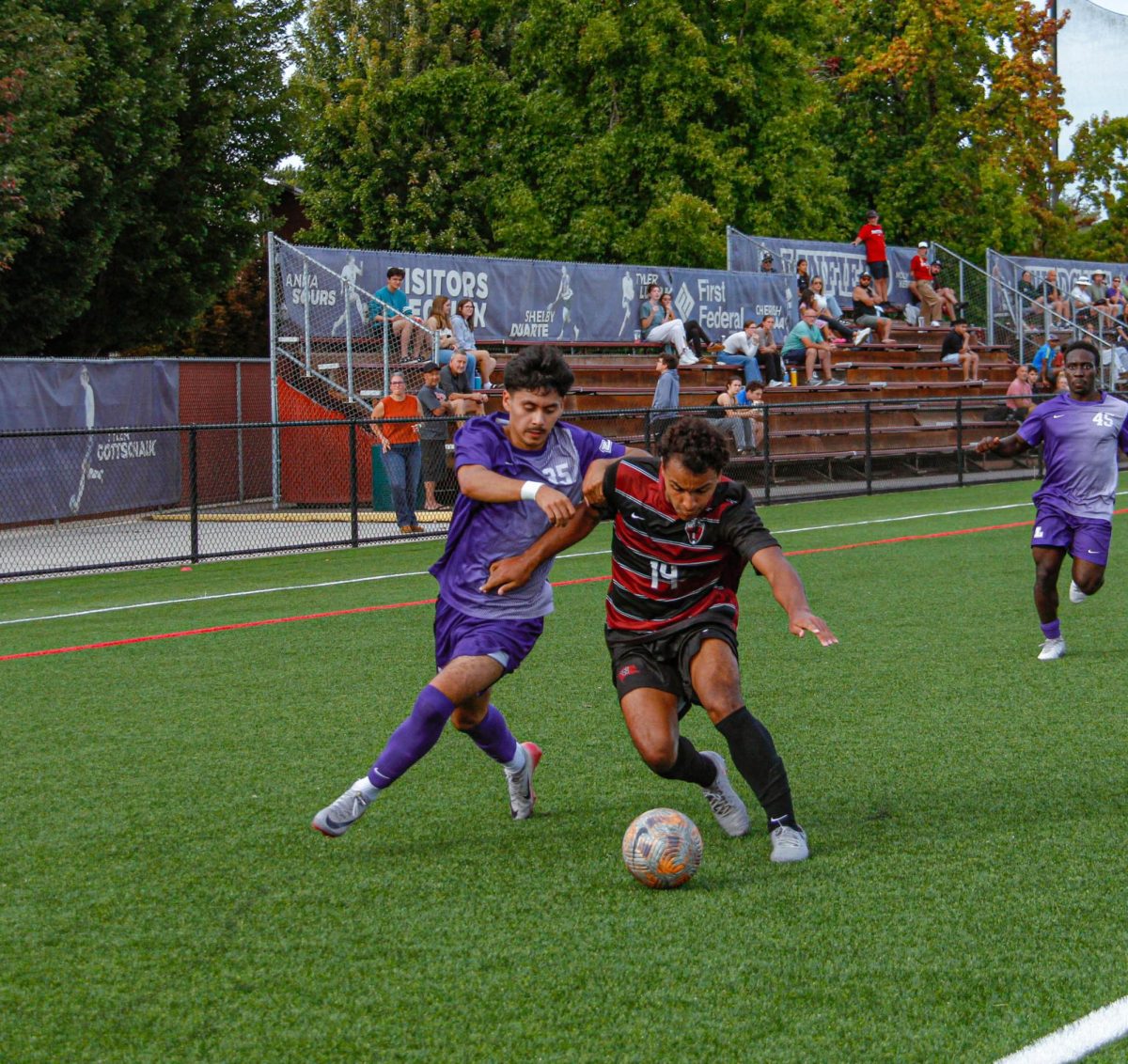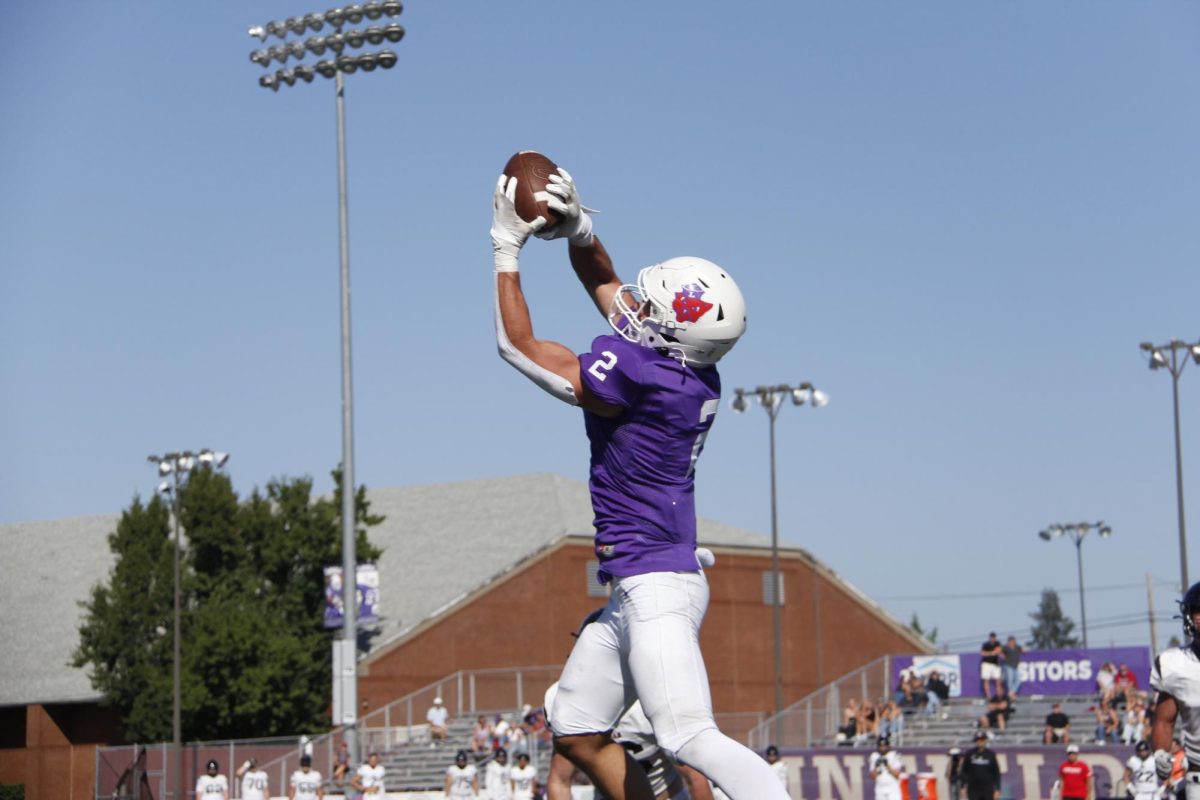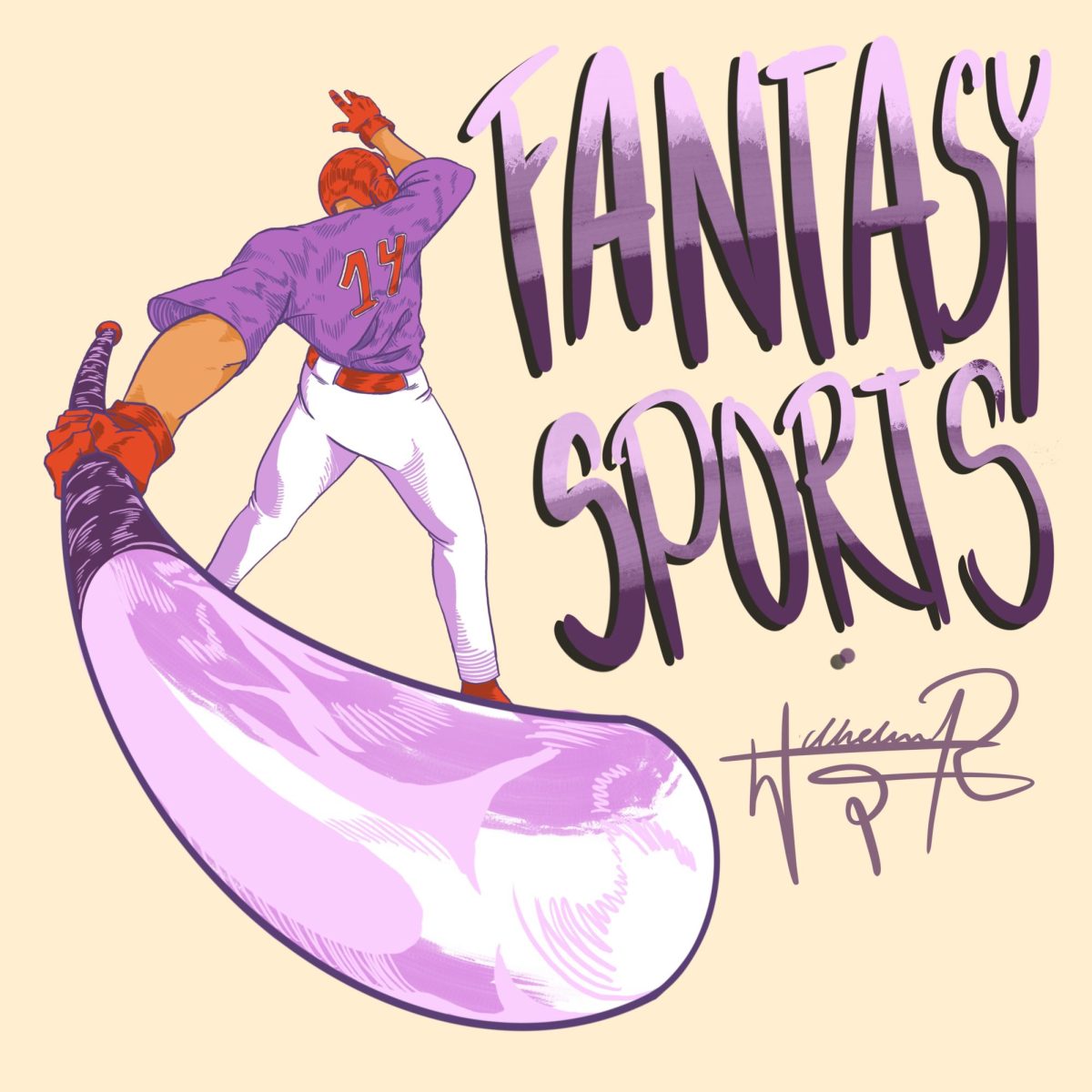It’s that time of year again. The words “buzzer beater,” “upset,” “Cinderella” and “Final Four” permeate the American vernacular. Brackets are filled, tears are shed and legends are made.
If you are lucky enough, you can win a bracket competition and tell everybody that the victory came from an innate skill—after all, it was obvious Norfolk State would beat Missouri, wake up people—and win some excellent prizes. Awesome!
Unless you are a NCAA athlete, then it’s not OK to win anything at all.
Last week, Linfield students were reminded via email from Amy Dames Smith, the Linfield NCAA Compliance Coordinator, of a certain NCAA law that, according to the email, bans student-athletes from competing in “March Madness pools where there is a prize of tangible value on the line.”
When asked about the rule, freshman Catie Mets, a basketball player here at Linfield, said, “It kind of takes the fun out of making a bracket… a Division I team to us is basically no different from the NBA or NFL. There is absolutely no connection or conflict of interest.”
Mets does illuminate the necessity of this rule for Division I athletes. An athlete gambling on a competition where he or she also participates is problematic (just ask Pete Rose).
But how come athletes from other sports are banned from lucrative bracket competitions? How come Division II and III athletes—who have no connection to Division I March Madness at all—are banned from lucrative bracket competitions?
This makes no sense at all.
Sure, all athletes can still fill out a bracket, but winning something because of a bracket is one of the most satisfying feelings one can have.
“I’m torn. I recognize it’s an NCAA rule, and I have to obey, but as a basketball player, March takes on even more meaning for me…so to not be able to compete and enjoy brackets as a Division III athlete is kind of a slap in the face,” said junior Jake Hillyer, a Linfield basketball player.
Bracket competitions abound, privately and publicly, across the country. The grand prize for the online ESPN Tournament Challenge, for example, is a $10,000 gift card to Best Buy.
Do you know what the grand prize is for the NCAA because of the NCAA tournament?
$797 million. This is the total income for this year from the media rights agreement by the NCAA, CBS sports and Turner Broadcasting. Next year, the total will increase by about 2 percent.
The popularity of major college sports is undeniable and always growing. TV deals will not go away.
Look no further than the newly formed PAC-12 conference. After signing a 12-year, $3 billion TV deal with Fox and ESPN, the PAC-12 networks began last August and will provide around $30 million annually to each school.
This money is possible because people want to watch the athletes, not because they appreciate the business acumen of the NCAA.
And yet, an athlete from Linfield or any other Division III school can’t win money or prizes by filling out a bracket?
This does not make any sense to me.
The hypocrisy of the NCAA is well documented. It hides behind a faulty banner that says, “student-athletes are amateurs,” while filling its pockets with $797 million.
The student-athletes provide the work and the entertainment and get paid zero dollars.
The hypocrisy is not restricted to the NCAA tournament of course. The infamous Terrelle Pryor, for example, and other Ohio State football players traded memorabilia for free tattoos, and the players received suspensions.
How much does a tattoo cost? I guarantee it doesn’t cost $50 million—which is roughly the total revenue the Ohio State football team generates per year. So, why does the NCAA care about smaller benefits? Why does the NCAA care about gambling in Division III?
According to a study conducted by the NCAA (conflict of interest) in 2008, 36.9 percent of male student-athletes in Division III wager on sports. Oh no, the shame!
The study found that 22.4 percent of male student-athletes in Division I wagered on sports. This makes sense, considering Division III students have less to lose, and they don’t participate in sports that generate gobs of revenue for the NCAA.
But the NCAA investigating the gambling habits of student-athletes and presenting the data as a problem is hypocritical.
Student-athletes should be able to gamble on sports if they want to. The NCAA wants to pretend that gambling shouldn’t exist, but guess what?
Gambling will always exist when the games continue to play, and the NCAA will continue cashing checks, while the games continue to play.
The NCAA should not be able to pretend its gambling restrictions are morally correct until the NCAA eliminates the hypocrisy of its own business.
If gambling is illegal for all student-athletes, Division I, II and III, then shouldn’t players see some of the $797 million from the NCAA and athletic departments?
In the meantime, Division III student-athletes will fill out brackets for the Division I tournament and miss out on winning money and enjoying the March Madness experience, and the leaders of the NCAA will pop $797 million worth of champagne. Champagne that is subsidized by the skills of the athletes it punishes for trying to win money…from the very same tournament.
So, while Cinderella stories and buzzer beaters and upsets will occur on the road to the Final Four, just as they always do, the NCAA will bathe in cash while NCAA athletes across the country lose an opportunity to make some cash.
This makes no sense at all.
Tyler Bradley
Sports columnist
Tyler Bradley can be reached at


